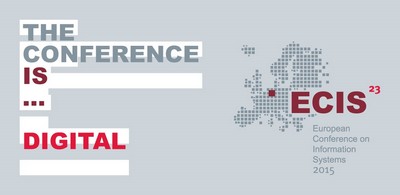DOI
10.18151/7217368
Abstract
With Software-as-a-Services (SaaS), benefits such as cost efficiency and flexibility gains are associated, which drive decision-makers to increasingly take this technology into account not only for supporting business processes, but also for core business processes. However, the trailing IT organizational impacts of SaaS integrations after the implementation phase often remain hidden. This paper examines the effects of SaaS on the perceived technical change radi-calness and the perceived IT organizational changes from the perspective of the socio-technical systems theory. We derive a research model that is suited to IT employees at SaaS using companies to investigate the changes in their daily tasks. The model is tested with data collected from 66 IT employees from various sectors in German-speaking countries. The empirical results indicate that an increasing SaaS usage level leads to instability in the socio-technical balance of using companies. Especially the perceived individual job outcome, a measure for soft facts such as job satisfaction, indicates that SaaS affects internal IT employees in a negative sense. Our valuable findings help management to understand the need for balancing both their willingness for SaaS adoption and the social impacts. The understanding of this interrelation helps the enforcement of more sustainable SaaS implementations.
Recommended Citation
Jede, Andreas and Teuteberg, Frank, "Looking Behind the Stage: Influence and Effect of Software-as-a-Service on Socio-technical Elements in Companies" (2015). ECIS 2015 Completed Research Papers. Paper 87.
ISBN 978-3-00-050284-2
https://aisel.aisnet.org/ecis2015_cr/87


